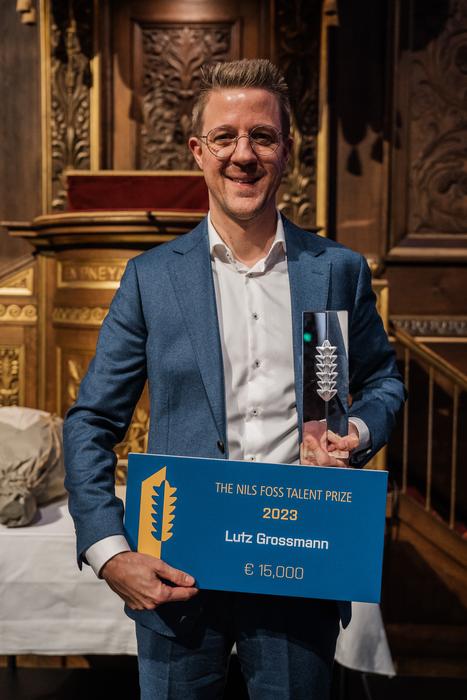Lutz Grossmann, assistant professor of food science, has been honored with the 2023 Nils Foss Talent Prize for his research into the development of environmentally friendly alternative proteins made from algae, bacteria and plants.

Credit: FOSS
Lutz Grossmann, assistant professor of food science, has been honored with the 2023 Nils Foss Talent Prize for his research into the development of environmentally friendly alternative proteins made from algae, bacteria and plants.
The international award, bestowed on an early-career scientist, was presented at a ceremony at the annual Food Analytics Conference at the University of Copenhagen.
When awarding the prize to Grossmann, Henrik Wegener, chair of the Prize Committee and rector of the University of Copenhagen, emphasized his outstanding contribution to the systematic design of environmentally friendly food ingredients, particularly alternative proteins. Grossmann’s achievements include pioneering a holistic approach along the alternative protein value chain and utilizing analytical technology.
Grossmann “has exhibited exceptional talent, dedication and innovation in sustainable food technologies,” Wegener said. “His work significantly contributes to practical product development within the food and agriculture community.”
“Being honored with an award is always remarkable, yet being granted the Nils Foss Talent Prize holds a unique significance, particularly due to the immense effort contributed by everyone at FOSS,” said Grossmann, who traveled to Denmark for the awards ceremony.
Beginning in 2016, FOSS, a multinational food tech company, has presented the Nils Foss Prize – two awards, Excellence and Talent – named in memory of the company’s founder. The Talent Prize is awarded to a promising scientist who has made a significant contribution in research or innovation to improve the sustainable use of agricultural resources and/or to ensure food quality and safety. The award is given to an early-career scientist who has completed a master’s degree within seven years or a Ph.D. within four years. The cash prize is 15,000 euros.
Grossmann’s research focuses on creating tasty, animal-free protein that has a low carbon footprint and is produced without relying on agricultural land. In one project in the Grossmann Lab, researchers seek to use renewable energy – solar, hydropower or wind – to split water into hydrogen and oxygen (the process of electrolysis) and then use the hydrogen as an energy source for the bacteria, known as hydrogenotrophs.



